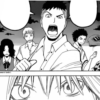Parallels between Vision Time & Horibe Itona Time
To say Vision Time and Horibe Itona Time parallel each other is nothing revolutionary but it remains a topic I love discussing because of how pertinent it is. The parallels between these arcs are important in understanding the parallels between Terasaka and Itona’s characters in general and why those two relate to each other in a way no one else in the class can.
First we must establish the purpose of these arcs. Most obviously they serve as turning points on the path to “redemption” for their protagonists, who have up to this point served as minor antagonists in the story overall. Additionally, Vision Time establishes a link between Terasaka and Itona (& Shiro) that would later become relevant – it’s conducted in such a way that when we next see Itona we can assume Terasaka will also play a role because Vision Time entwined their characters. Due to this, it narratively and thematically does not make sense for anyone other than Terasaka to be the one who reaches Itona.
Secondly, the parallels in plot and structure of said plot are the two crucial aspects to examine. The subject begins the arc in a state of instability due to their mindset and behaviour and goes rogue. Terasaka has reached his boiling point with his classmates’ and, most notably, Yoshida and Muramatsu’s trust and amiability towards Korosensei and the change Koro-sensei has brought to the class as a whole. Itona has reached his boiling point with his repeated inability to kill Korosensei and his ideals of strength and victory continuously extinguished. This leads to them being approached by figures who promise “help” (Shiro for Terasaka, Korosensei for Itona) which in turn leads to further extremity and spiralling.
The climax of these arcs has their protagonist confronted by another character (Karma for Terasaka, Terasaka for Itona), leading to their startling realisation of the damage the mindset they’ve championed has inflicted and opening the way for redemption. Right before the confrontation we see a flashback providing insight into where their mentality stemmed from.
The arcs share a motif of destruction with Terasaka intent on fracturing the relationship between Korosensei and the class, literally destroying the swimming pool as a symbolic destruction of that relationship, where Itona endeavours to destroy the words and ideals of his father and literally destroys cellphone stores as a symbolic destruction of that.
We see Terasaka’s adopted proclivity for self-sacrifice in these episodes, and in the same manner. In the conclusion of Vision Time, Terasaka takes Itona’s tentacle to his gut to distract and disarm him. In the conclusion of Horibe Itona Time, he does the same, only this time to reach and ground him. In both cases, Terasaka deliberately puts himself in Itona’s line of fire in the moment of highest tension to reach a resolution.
Furthermore, Shiro’s manipulation of Itona and Terasaka follow the same beats. He targets these two boys when they are at their lowest and most desperate and convinces them to join him with honeyed words that appeal to their plights. He encourages their destructive mentalities and promises them deceptively simple solutions that, in reality, result in more strife and pain than they were in before. Both Terasaka and Itona are puppets tied to the same strings and the parallels between their arcs elucidates that.
All these choices intentionally draw parallels between these two arcs and again help us understand why it must be Terasaka who reaches through to Itona.
There are, of course, thematic parallels of redemption and growth. Nagisa highlights this in a summary at the close of each arc:
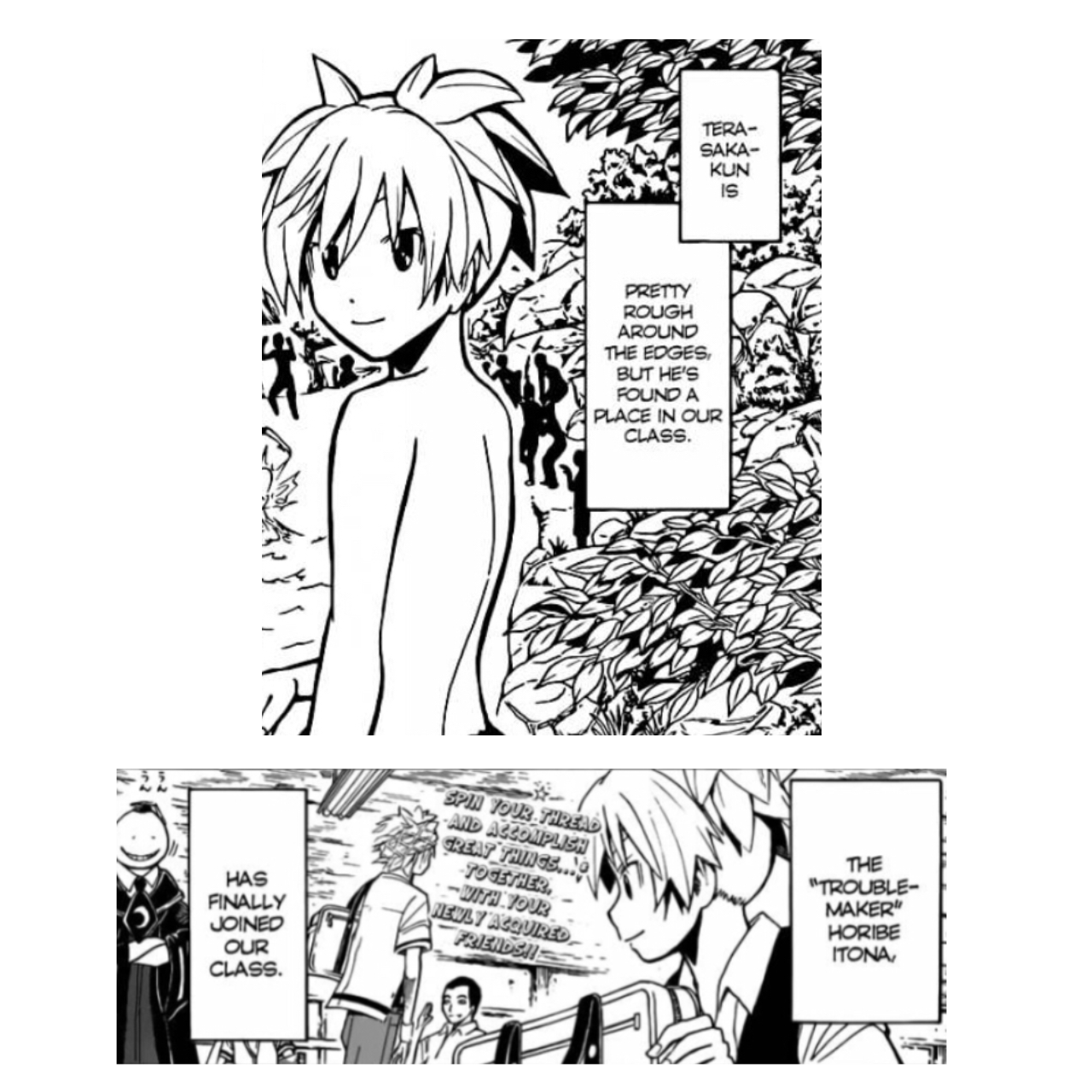
Furthermore, specific moments parallel each other and are significant in their own right. The most glaring is this parallel:
In these two moments, Terasaka and Itona confront the other. Why? To give them advice of some sort, though their motivations in doing so differ. Itona tells Terasaka about the concept of having “vision” – that there is no point in doing anything if you do not have the vision to see it through. Meanwhile, Terasaka tells Itona about the importance of patience and failure — that it’s okay to try again, to fail, to not be “strong” all the time. These words resonate with the recipient. It’s later in the same arc in Terasaka’s case and the chapter following his arc in Itona’s case that they repeat these words, demonstrating how firmly they took them to heart.
Here are a few other parallels I think are worth noting:
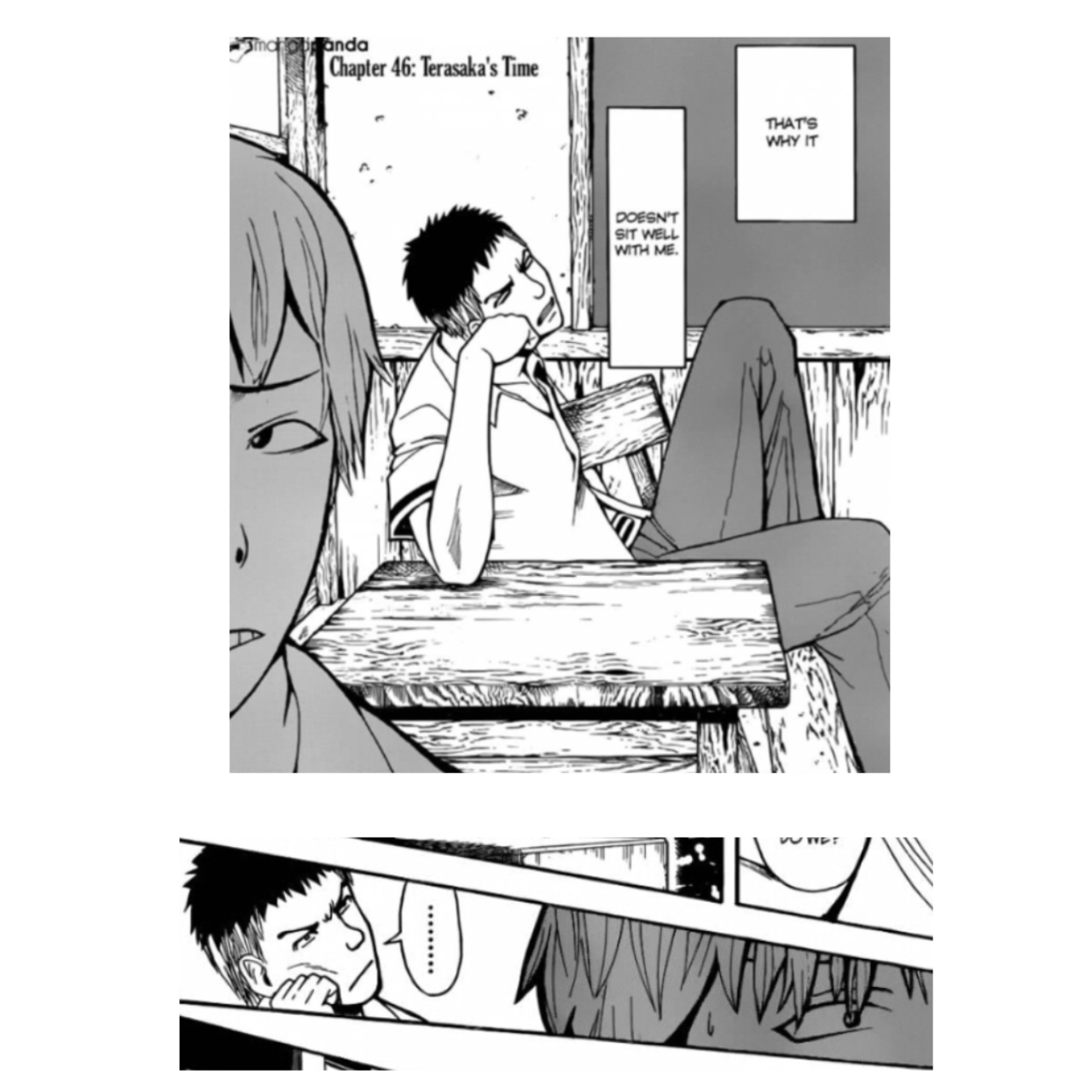
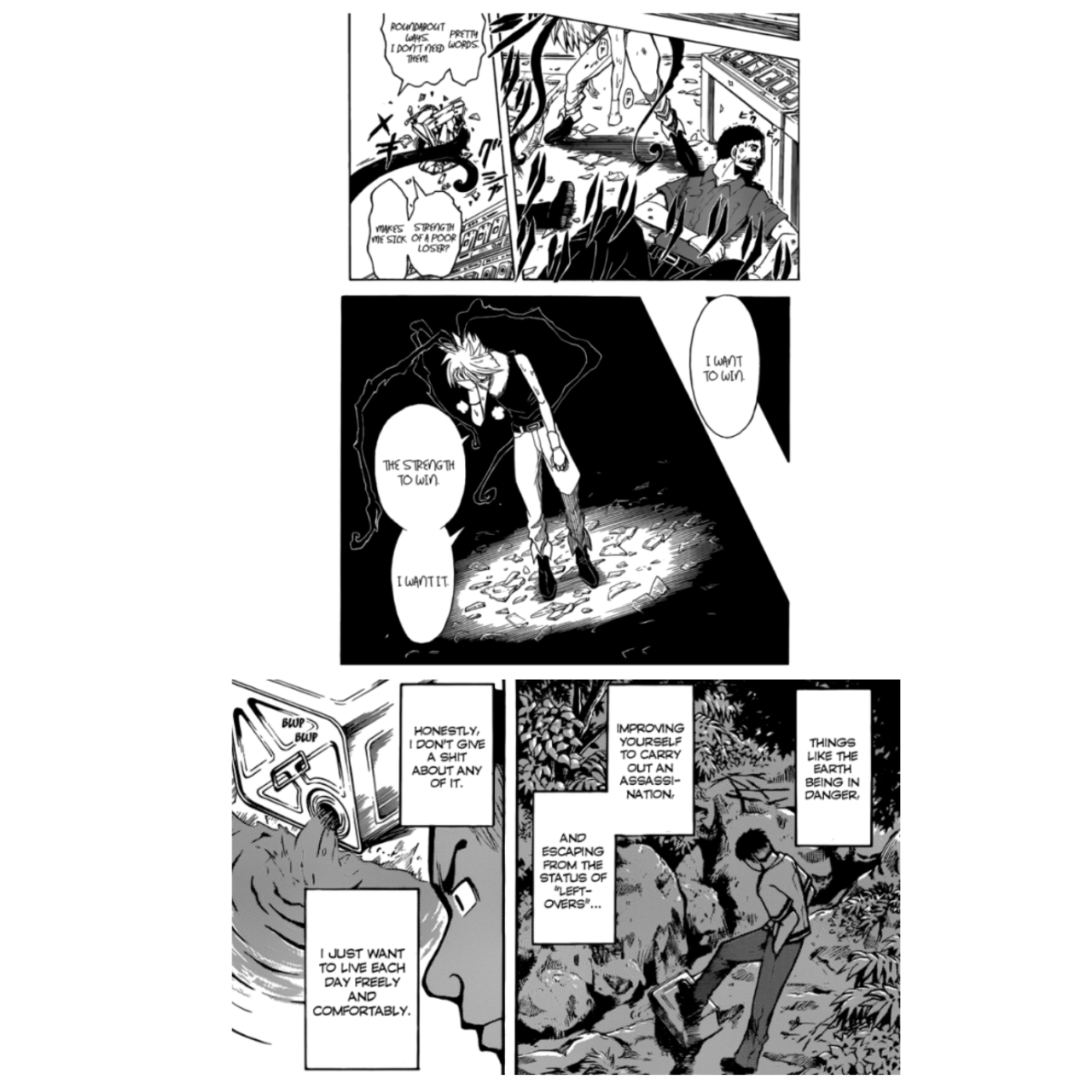
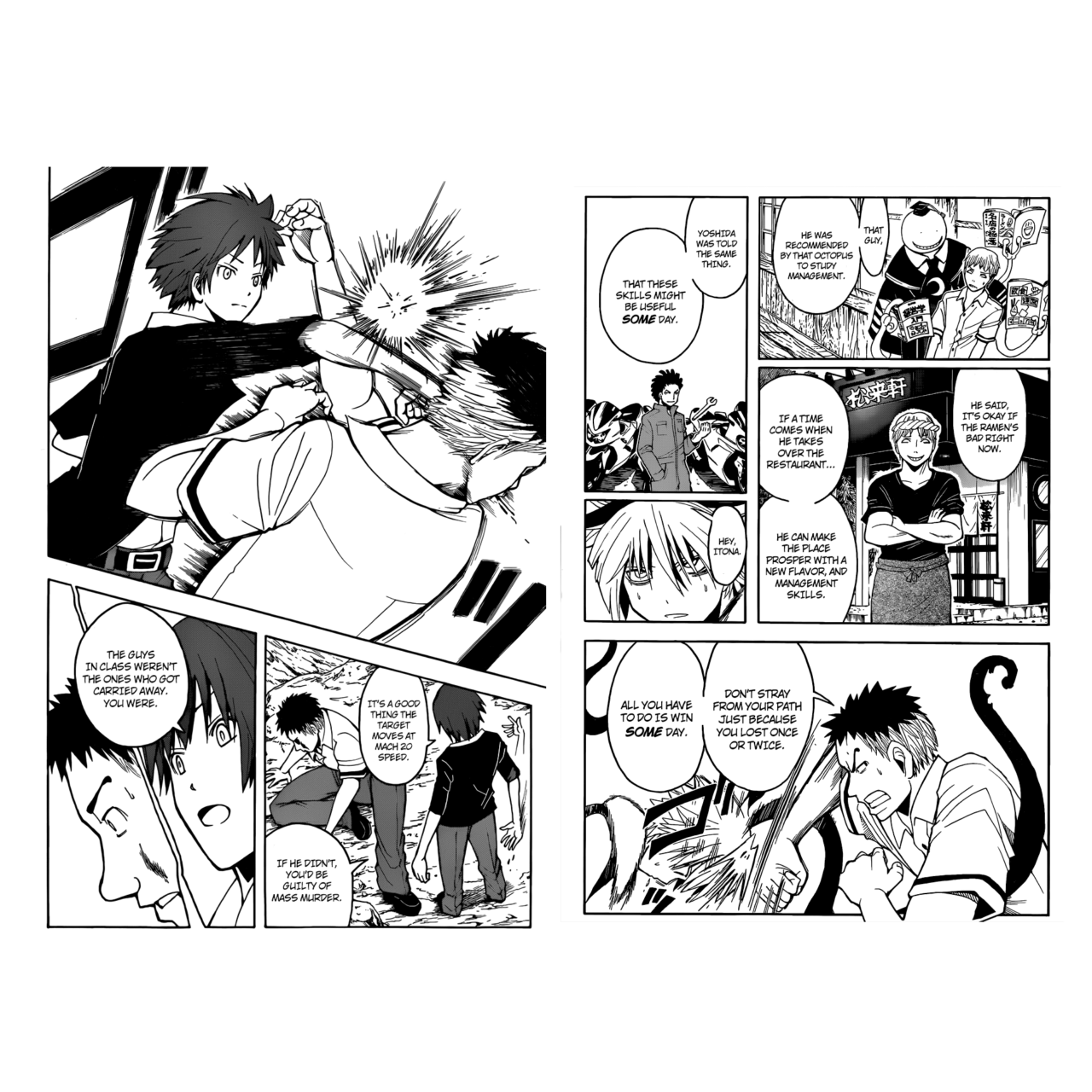
The entire existence of Vision Time is essential to understanding Horibe Itona Time and the two arcs contain striking parallels that are deliberate choices due to the characters they focus on.
